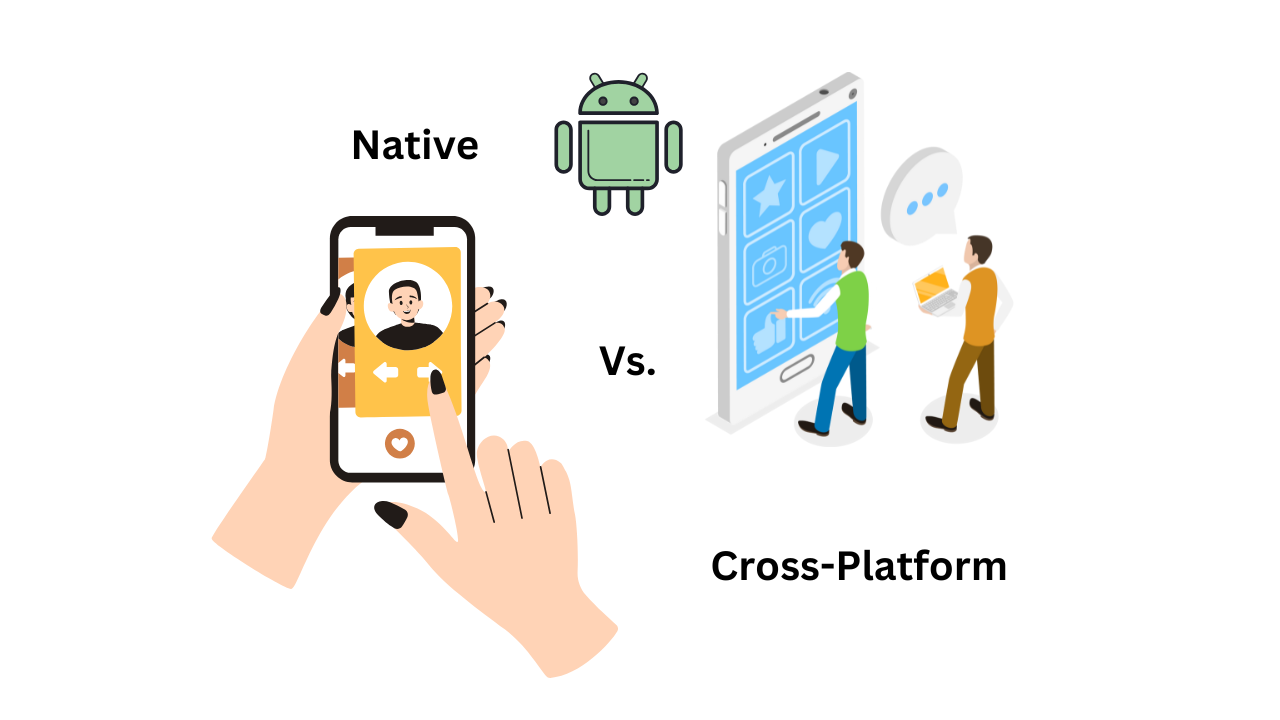In the world of app development, choosing the right approach is one of the most critical decisions for your business. Two primary options dominate the landscape: native apps and cross-platform apps. Each has its own strengths and weaknesses, and understanding the difference is key to aligning your app development strategy with your business goals.
What Are Native Apps?
Native apps are built specifically for a single platform—either iOS or Android—using platform-specific programming languages, such as:
- Swift/Objective-C for iOS.
- Java/Kotlin for Android.
They are downloaded from app stores and can leverage all the platform’s features for the best possible performance.
Advantages of Native Apps:
- Unmatched Performance: Native apps are optimized for their respective platforms, ensuring faster load times and smoother execution.
- Access to Device Features: They can utilize device features like GPS, camera, and push notifications seamlessly.
- Enhanced User Experience: Native apps offer superior UI/UX because they follow specific platform guidelines.
Disadvantages:
- Higher Development Cost: Separate codebases for iOS and Android lead to increased time and expense.
- Longer Development Time: Building two separate apps can significantly extend the timeline.
Cross-platform apps are developed using frameworks like React Native, Flutter, or Xamarin to create a single codebase that works across multiple platforms.
What Are Cross-Platform Apps?
Advantages of Cross-Platform Apps:
- Cost-Efficiency: A single codebase reduces the need for two development teams, lowering costs.
- Faster Time to Market: Writing once and deploying on both platforms speeds up the process.
- Wider Reach: Launching on both iOS and Android simultaneously increases your potential user base.
Disadvantages:
- Performance Limitations: These apps may not be as fast or smooth as native apps, particularly for resource-intensive features.
- Limited Access to Native Features: They rely on plugins, which might not cover all platform-specific functionalities.
- Potential Bugs: A single codebase means bugs on one platform could affect the other.
Key Considerations When Choosing Between Native and Cross-Platform Apps
- Target Audience:
- If your users predominantly use one platform (e.g., iOS in the U.S. or Android in India), a native app might be ideal.
- For a global audience, cross-platform can ensure a wider reach.
- Budget Constraints:
- Limited budget? Cross-platform apps are more cost-effective.
- Bigger budget? Invest in native apps for superior quality and performance.
- Project Timeline:
- Need a faster launch? Cross-platform development is quicker.
- Time to spare? Native development allows for greater refinement.
- App Complexity:
- For apps requiring heavy performance (e.g., gaming or AR/VR), go native.
- For simpler functionality or MVPs, cross-platform is sufficient.
- Future Scalability:
- Native apps allow for more scalability and flexibility when upgrading.
When to Choose Native Apps?
- Apps requiring high performance, like gaming or video streaming platforms.
- Apps that need deep integration with hardware features (e.g., camera, GPS).
- Apps targeting a specific platform audience.
Examples: Instagram, Uber, WhatsApp.
When to Choose Cross-Platform Apps?
- Apps with a limited budget or tight deadlines.
- Apps meant for a wider audience across multiple platforms.
- Apps serving as a Minimum Viable Product (MVP) to test the market.
Examples: Airbnb, Facebook, Skype.
The Verdict
The choice between native and cross-platform development depends entirely on your business needs, goals, and resources. While native apps deliver unmatched performance and user experience, cross-platform apps strike a balance between cost-efficiency and market reach.
At Aviora, we specialize in both native and cross-platform app development. Whether you’re building a high-performance native app or a budget-friendly cross-platform solution, we can guide you through every step of the process.
Let’s Build Your App Together
Contact us today to discuss your app requirements and find the perfect development strategy for your business.


Hi, this is a comment.
To get started with moderating, editing, and deleting comments, please visit the Comments screen in the dashboard.
Commenter avatars come from Gravatar.